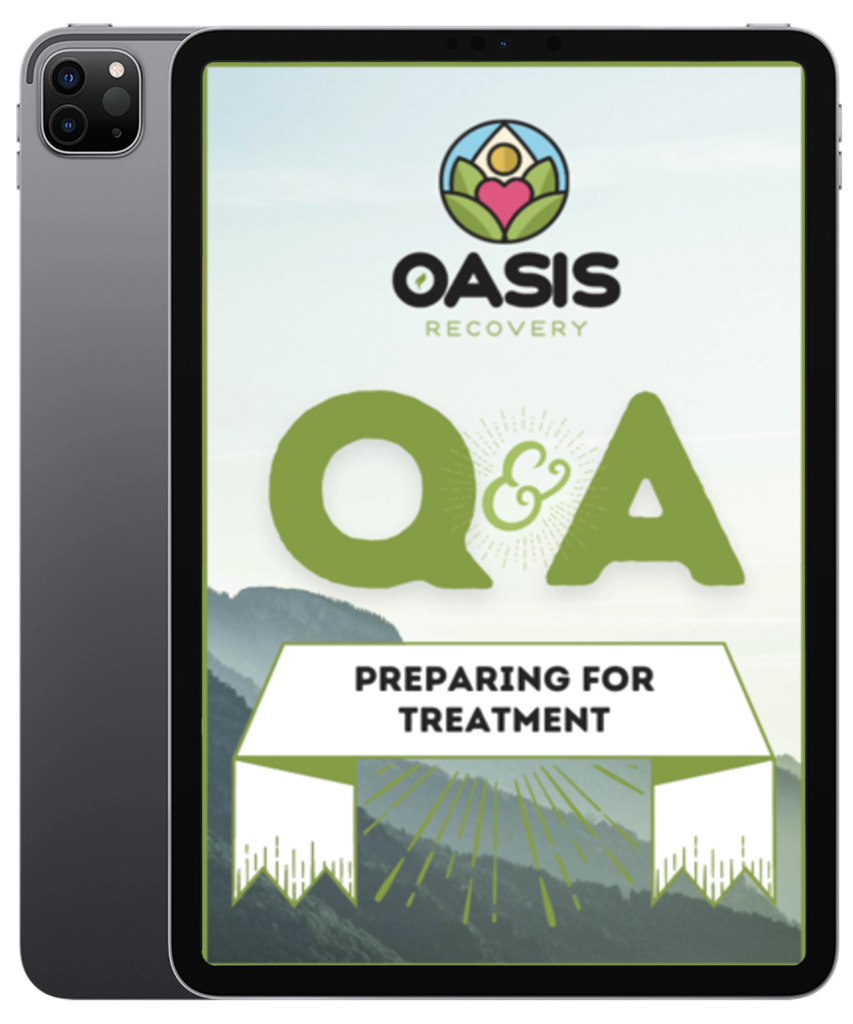Mindful Meditation Therapy in Asheville, NC
.
Mindful Meditation at Oasis
We can accomplish almost anything we set our mind to during the day—whether it be brushing our teeth, doing the dishes, chatting with friends, or exercising. When we’re paying attention to our actions, we’re tuned into our senses rather than going through the motions. By incorporating mindfulness into your daily life, you may practice mindfulness even when you’re too busy to meditate.
Being fully present, aware of where we are and what we’re doing, and not being overstimulated or overloaded by our surroundings is at the core of mindfulness. You can practice mindfulness by participating in a formal meditation session, or by paying more attention to the things you do on a daily basis.
What is Mindfulness Meditation?
Mindfulness meditation teaches you to regulate your thoughts by slowing them down and eliminating negativity, in addition to meditation. This mental state involves focusing on the present moment so that you may acknowledge and accept your thoughts, feelings, and physical sensations without bias.

How to Practice Mindfulness Meditation
Although techniques may vary, mindfulness meditation typically involves deep breathing and concentration on your body and mind. To begin, you must find a comfortable place to sit for three to five minutes, and you need only that.
- Find a comfortable and quiet place to sit or lie down. Loose-fitting clothing can also help you avoid being distracted. Make sure your back, neck, and head are straight but not rigid.
- Setting a timer can help you focus on meditation and forget about time, eliminates any excuses you might have for stopping and doing something else, and ensures you’re not meditating for too long. You should also allow yourself time after meditation to become aware of your location and get up gradually. Meditating for even a few minutes daily can make a big difference. Begin with a brief, 5-minute session and increase your time until you are comfortable meditating for 30 minutes at a time.
- Instead of attempting to stop thoughts from arising, your objective is to get used to being the “witness” to them. When thoughts occur to you, don’t ignore or suppress them. Instead, record them, remain calm, and anchor your breathing with them. You may watch your thoughts float by like clouds as they fluctuate and change. This might be necessary repeatedly while you are meditating.
- Keep track of your breathing, paying attention to the air flowing into and out of your body as you breathe. Notice the temperature change when inhaling and exhaling. Notice the rise and fall of your belly as the air enters your nostrils and leaves them.
Mindfulness Meditation for Anxiety and Other Benefits
Studies have found that meditating three to four times per week can have huge benefits, and regularly meditating for eight weeks will actually change the brain, according to neuroimaging studies. However, that doesn’t necessarily mean that you need to meditate every day. In fact, a study found that meditating just three times per week for eight weeks can result in significant improvements. The following are some of the many benefits recognized from practicing mindfulness meditation:
- Heart Health – The study found that participants who were enrolled in an online mindfulness meditation program for heart disease, in addition to receiving standard treatment, experienced significant decreases in their heart rates and enhanced cardiovascular capacity testing.
- Stress Reduction – has been demonstrated to reduce the signs of stress in healthy individuals.1 It has also been found to be beneficial for a variety of mental and physical health problems, including anxiety, depression, and chronic pain.
- Increased Immunity – According to research, practicing mindfulness may also improve your body’s resistance to illness. In a study comparing the effects of both mindfulness and exercise on immune function,3 people who took part in an eight-week mindfulness program experienced greater improvements in immune function than those in the exercise group.
- Improved Sleep – Moreover, studies have shown that practicing mindfulness meditation might improve sleep quality and even be beneficial for treating certain sleep disorders. One 2019 study found that mindfulness meditation significantly improved sleep quality.
Mindfulness Meditation Exercises
When you’re busy, it’s important to find ways to bring mindfulness to your everyday life, whether that’s through mindfulness meditation or other techniques. Mindfulness meditation, of course, is one technique, but there are plenty of other opportunities to practice mindfulness every day.
- When brushing your teeth – Feeling the weight of your feet on the floor, the brush in your hand and the up-and-down movement of your arm are all signs you’re brushing your teeth.
- When doing the laundry – Notice the smell of the clean laundry as you fold it. As you fold, pause and count your breaths as you focus on the scents.
- When washing the dishes – Pay attention to the sound of the pans as they hit the bottom of the sink, the appearance of the bubbles, and feel the warm water on your skin.
- When exercising – Instead of watching TV while exercising, try focusing on your breathing and where your feet are positioned rather than on a screen.
- When driving – Switch off the radio or put on something soothing, like classical music. Focus on where your vehicle and body are in space when you notice your thoughts wandering.
Many people find the idea of beginning a mindfulness meditation practice intimidating, but the important thing is to stick with it even for a few minutes each day. Even a small amount of time spent in the present moment can yield substantial rewards. You can use this habit as a resource when you need it.
Mindfulness Meditation as Therapy
The most common method for delivering a mindfulness-based approach is through the use of mindfulness meditation, though mindfulness may be achieved through a variety of techniques. During mindfulness meditation, the client will typically be instructed to focus on the current moment. During the session, the client will be instructed to concentrate on a certain element. If they realise that their thoughts have drifted away from the present, they are encouraged to become aware of where they are and what they are doing before returning to the present moment without judging or reacting. The emotions and physical sensations experienced as a result of the client’s thinking can be better understood and addressed by therapists.
Gentle yoga movements and sitting, walking, or mountain meditations may be incorporated into mindfulness approaches in order to enhance bodily awareness. Throughout various activities, the person in treatment can be instructed to remain aware of movement, breathing, and sensations. Breathing exercises, body scan meditations, and guided imagery are frequently utilized in mindfulness treatment. Eventually, mindfulness might be practiced in daily life. This continuation of the therapeutic process allows the individual to perceive, examine, and explore mindfulness in a non-clinical setting. The examination and observations that may derive from the combined observations and examinations may serve as a catalyst for behavior and thought change.
Mindfulness Meditation at Oasis Recovery Center
Mindfulness meditation has many advantages, including lowering stress, improving emotional regulation, enhancing cognitive abilities, and strengthening relationships. Neural changes have also been observed as a result of mindfulness research.
If you or a loved one are currently living with a substance use disorder and are interested in mindfulness meditation, help is available! We encourage you to reach out to the professionals at Oasis Recovery to learn more about our personalized treatment programs and mental health services.
Oasis Recovery was founded from firsthand experience of addiction and recovery, with a mission of providing a space where people can heal from addiction in a compassionate, creative, open-minded, and heart-centered environment. We believe recovery is always possible. Our experts work with you to design a treatment plan that fits your needs. Common treatment programs include:
- Intensive Outpatient Programs (IOP)
- Full-time Addiction Treatment on campus
- Aftercare Services
Contact us today for more information about how our programs and services can help you get your life back on track. You no longer have to struggle with this on your own. We are here to help.
Oasis Is Here For You
If you or a loved one could benefit from addiction treatment, the experts at Oasis Recovery are here for you. Between our various treatment programs, therapies, and supportive community, we provide the quality care that you deserve. To learn more about all we have to offer, download our free eBook today. You no longer have to struggle with addiction alone.



